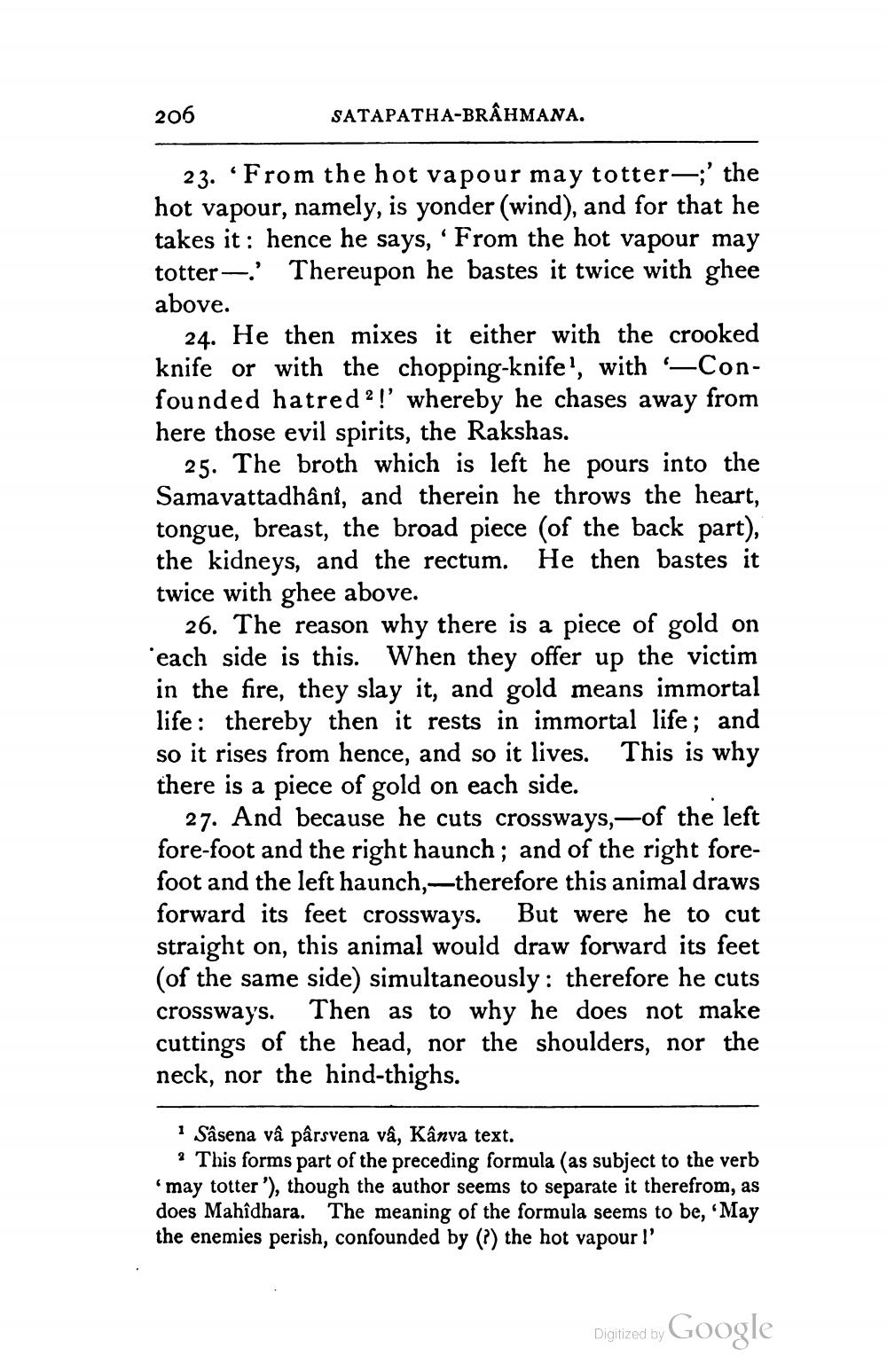________________
206
SATAPATHA-BRAHMANA.
23. 'From the hot vapour may totter—;' the hot vapour, namely, is yonder (wind), and for that he takes it: hence he says, 'From the hot vapour may totter—. Thereupon he bastes it twice with ghee above.
24. He then mixes it either with the crooked knife or with the chopping-knife!, with —Confounded hatred ?!' whereby he chases away from here those evil spirits, the Rakshas.
25. The broth which is left he pours into the Samavattadhâni, and therein he throws the heart, tongue, breast, the broad piece (of the back part), the kidneys, and the rectum. He then bastes it twice with ghee above.
26. The reason why there is a piece of gold on each side is this. When they offer up the victim in the fire, they slay it, and gold means immortal life: thereby then it rests in immortal life; and so it rises from hence, and so it lives. This is why there is a piece of gold on each side.
27. And because he cuts crossways,—of the left fore-foot and the right haunch; and of the right forefoot and the left haunch,—therefore this animal draws forward its feet crossways. But were he to cut straight on, this animal would draw forward its feet (of the same side) simultaneously: therefore he cuts crossways. Then as to why he does not make cuttings of the head, nor the shoulders, nor the neck, nor the hind-thighs.
Sâsena vâ pârsvena vâ, Kânva text. ? This forms part of the preceding formula (as subject to the verb may totter'), though the author seems to separate it therefrom, as does Mahîdhara. The meaning of the formula seems to be, May the enemies perish, confounded by (?) the hot vapour l'
Digitized by Google




